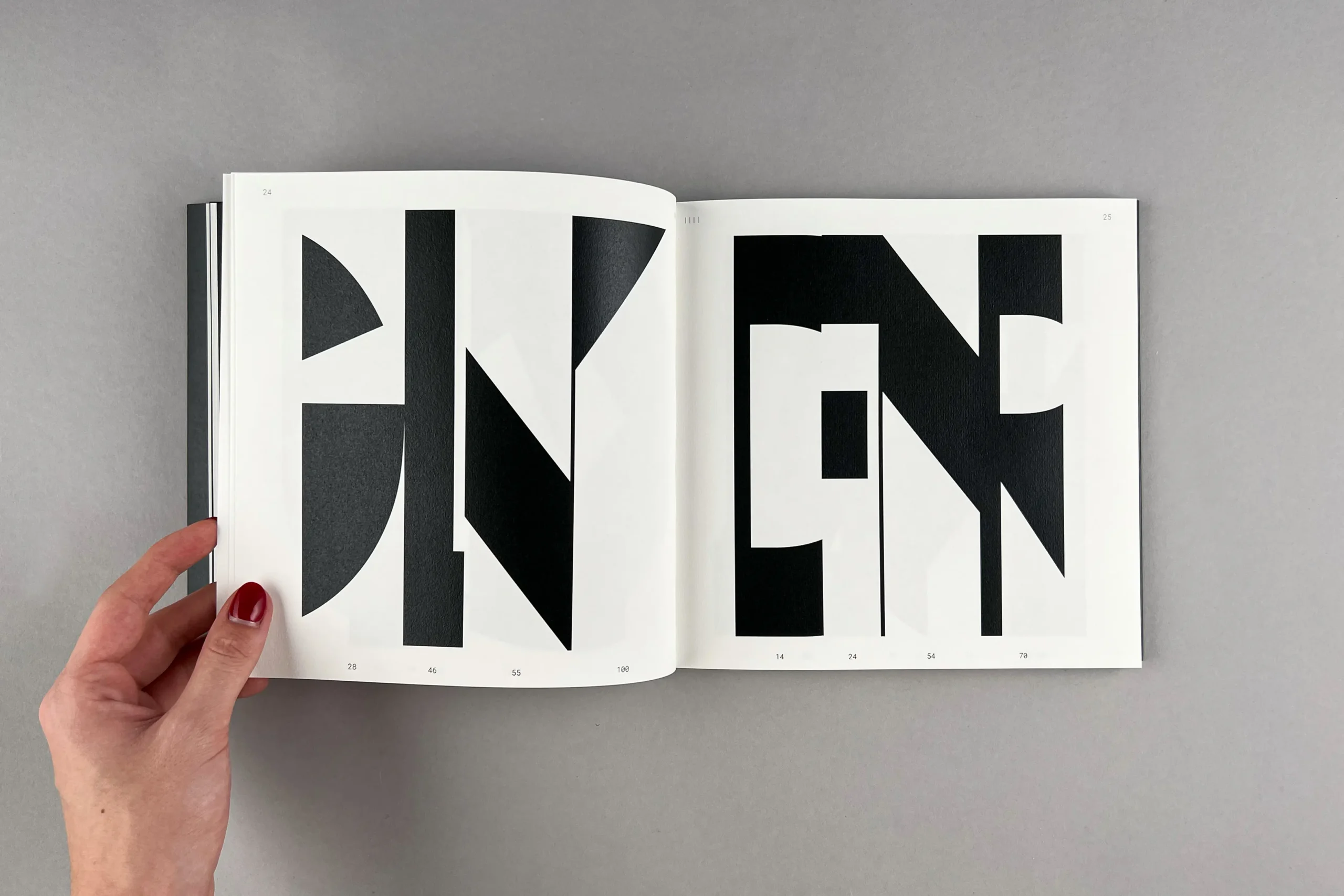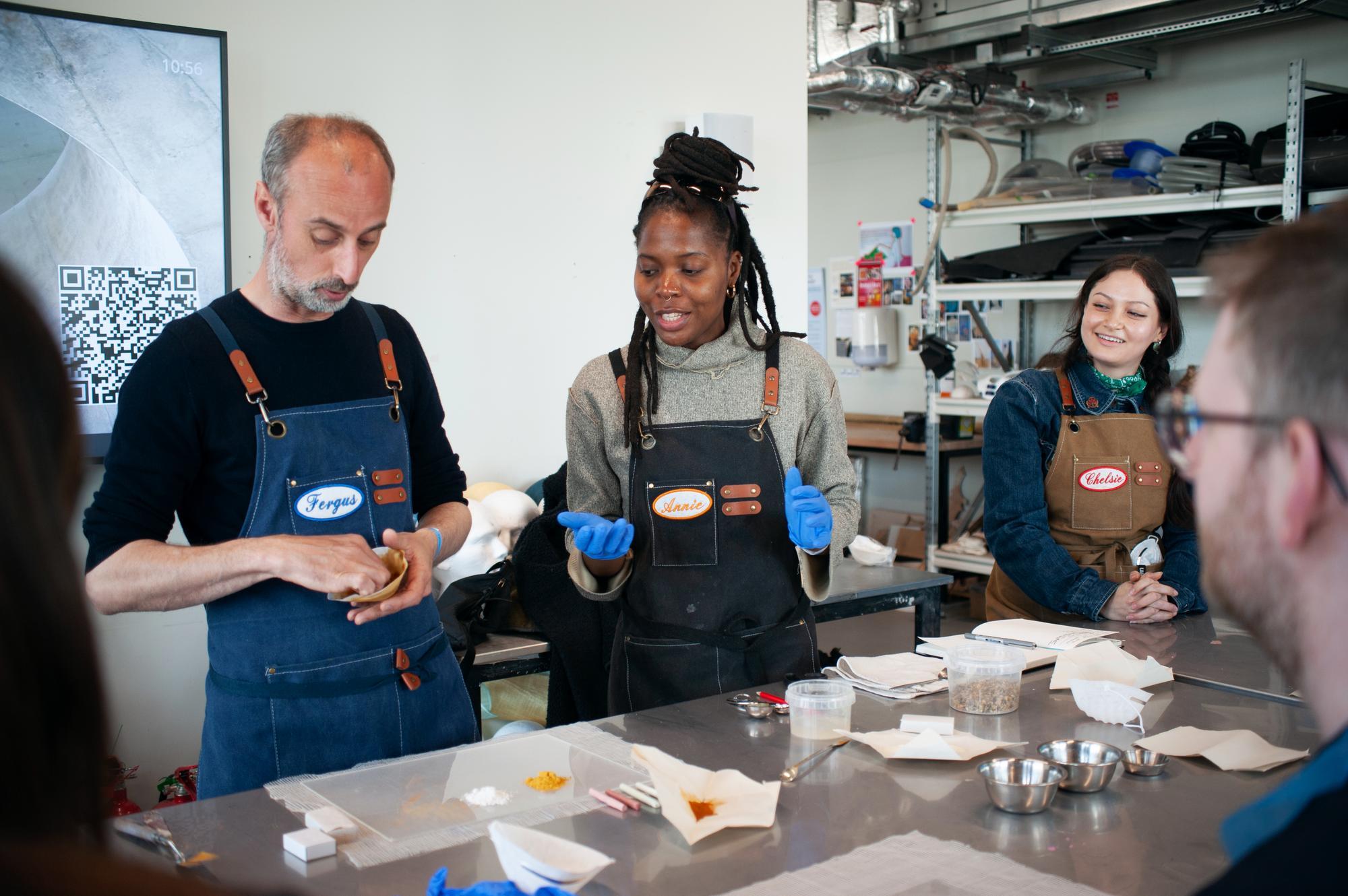Our process
Useful information to guide you through the recruitment process
Overview
At UAL, our recruitment process is designed to be fair, transparent and inclusive, whether you’re applying as an external candidate or already part of the University. Applications are anonymised for shortlisting, which means that any personally identifiable information is hidden from our interview and bias-trained selection panels. This minimises the risk of bias and ensures equity for all candidates.
We are proud to be a Disability Confident Level 1 Committed employer and a member of the Business Disability Forum. We actively encourage applications from disabled candidates and are committed to provide interviews to those who meet the essential (minimum) criteria. However, please note, there may be some exceptions that causes limitations to this commitment such as when a high volume of applications is received. For further information about the scheme is processed, please refer to the Application form information page.
While the steps may vary depending on the nature and level of the role, the typical selection process takes approximately six weeks following the closing date and usually involves five core stages:
| Stage 1 | Stage 2 | Stage 3 | Stage 4 | Stage 5 |
| Application | Shortlisting | Interview | Offer | Onboarding |
Some roles may require additional stages during the interview process, such as a Psychometric Assessment, Presentation or Micro-Teach Session, Stakeholder Interview, or Panel Interview. For example, applicants for a Professor role may be invited to complete psychometric testing and deliver a presentation to senior academics.
Once a vacancy has closed, the relevant Resourcing Team will notify the selection panel to begin the shortlisting process. Candidates are usually notified of the outcome within 10–15 days, although this may take longer during periods of high application volume. Applicants who are shortlisted will be invited to the next stage; those who are not successful will also be notified by email.
We encourage applicants to apply as early as possible to our roles. Occasionally, the closing date may be brought forward if we receive a high volume of applications. We aim to provide at least 24 hours’ notice if this occurs but try to aim for 48 hours’ notice where operationally possible. If you have general queries or have any accessibility needs, contact details are usually included in the job advert. If not, please visit the Contact us page and quote the vacancy ID, job title and your application ID (if applicable).
Making an application
To apply for any of our roles, you must follow the specific instructions outlined in the job advert. Most applications must be submitted via our official job board. Unfortunately, we do not accept speculative CVs or applications by email.
If you’ve not applied with us before, you’ll need to create an account. Registration is quick and enables you to track your progress. You may save and return to your application, provided the vacancy remains open.
Applications typically request one or more of the following:
- An application form including employment and education history;
- A CV;
- Competency-based questions;
- A supporting statement;
- Evidence of research or published work (for academic roles).
All applications are scored using a standard matrix:
| Score | 0 | 1 | 2 | 3 |
| Description | Not met | Partially met | Fully met | Exceeds |
The ‘Supporting Information’ section will indicate whether you should address specific competency questions or provide a general supporting statement, aligned with the person specification. This may include the following competency areas:
| Experience, knowledge and qualifications | Research, Teaching and Learning or Professional practice |
| Communication skills | Teamwork |
| Leadership and management | Student experience or Customer service |
| Planning and managing resources | Creativity, innovation and problem solving |
.
We recommended structuring answers using either the STAR (Situation, Task, Action, Result) or CARL (Context, Action, Result, Learning) methods – both approaches will help you to showcase your suitability.
| STAR method | CARL method |
| Situation – where, when, who | Context – the setting or background |
| Task – what you aimed to achieve | Action – what you did and how |
| Action – what you did and how | Result – the outcome and impact |
| Result – the outcome and impact | Learning – reflect on what you learnt |
We do not have any software or tools that will automatically score and assess your application. All applications submitted to us are reviewed by a selection panel in an anonymous manner where any personally identifable information is anonymised/encrypted from review (name, address, diversity information etc) to mitigate against potential biases that could occur.
A note on using AI in your application
At UAL, we recognise the growing role of AI tools in professional and creative settings. While you may choose to use such tools to support the application process, we encourage you to consider carefully how this adds value.
We are particularly interested in hearing from you – your unique experiences, insights and aspirations. Applications generated primarily through AI can often feel impersonal and may not reflect the authenticity we value in our candidates. We strongly recommend that you use your own voice when sharing your skills and achievements. This allows us to better understand how you align with the role, the team and the values of UAL.
Assessment and interview process
If you’re invited to attend an interview or assessment – congratulations! This means we would like to explore your suitability for the role further.
At UAL, we use competency-based interviews. These focus on your past experiences and behaviours, with questions such as “Tell me about a time when…” or “Describe a situation in which…”. If you’re newer to the workplace, you can draw from academic, volunteering, or social experiences.
This is not only a chance for us to assess you – it’s also an opportunity for you to assess whether the role aligns with your goals. Feel free to ask questions at the end of the interview.
Interview preparation – top tips
- Answering questions
Just like for applications, it is recommended to structure answers using either the STAR (Situation, Task, Action, Result) or CARL (Context, Action, Result, Learning) methods. - Review the Person Specification
Questions will be based on the competencies in the Person Specification so reviewing them will help with preparation for what might be asked. - Understand the role and context
Familiarise yourself with the department, team objectives and any relevant sector developments. - Highlight achievements
Demonstrate how your qualifications, experience and impact align with the role – if relevant, include professional networks you’re part of.
During the interview
- Take your time before responding – it’s fine to pause and think.
- Breathe – managing nerves is normal, and staying calm helps clarity.
- Ask for clarification – don’t hesitate to request a question be repeated.
- Use your notes – concise prompts can support your responses and show preparation.
After the interview
If you’re successful – congratulations! We understand this may be a sensitive time if others you know also applied, so we ask all candidates to be mindful and respectful.
If you are not successful, feedback should be offered by the interview chair, including scores where possible. Use this constructively to support future applications.
Top tip: If you’re not selected this time, use the experience to strengthen your skills and prepare for future opportunities. UAL is committed to the development and progression of all candidates.
Reasonable adjustments
We are committed to ensuring our recruitment process is accessible. If you require any reasonable adjustments to, please let us know. This could include changes to the interview format, additional support during assessments, or adjustments to online systems. You can either communicate these in advance otherwise the application form will contain a section for you to input any you may require. Requests for adjustments will not affect your application and will only be reviewed and shared by the Resourcing Team managing the vacancy when arranging such adjustments.
Pre-employment checks
Eligibility of Right to Work (RtW)
Conratulations if you have been successful in being offered a role with us! All job offers are conditional upon proof of your Right to Work (RtW) in the UK.
We use an external provider called TrustID for our digital Right to Work checks if you are a British or Irish citizen with a valid passport. If the check fails or you do not hold a valid passport, you will need to come in-person with a valid identity document for a manual check.
We will also need to conduct an identity check virtually or in-person where you hold your photographic identity documentation side-by-side so we can check the likeness.
Certain roles may also require a DBS (Disclosure and Barring Service) check in line with our safeguarding requirements. Please refer to the job advert/job description for further information.
For apprenticeship roles, we must ensure that applicants also meet the apprenticeship eligibility criteria as outlined in Annex A of the DfE Apprenticeship Funding Rules. In addition to having the right to work in the UK, you must have been ordinarily resident in the UK for the past three years.
Unfortunately, non-UK nationals who have had continuous residency in the UK for the last three years solely for the purposes of education (e.g. you have been resident un the UK solely because you have been on a Student visa) are not eligible. For apprenticeship-specific eligibility enquiries, please contact: apprenticeships@arts.ac.uk
References
The conditional offer form you will be sent following a verbal confirmation will require you to accept and then provide references covering at least the last 2 years. These need to be professional or educational referees that match at least the last 2 years of your employment and/or education history. Personal email addresses of referees cannot be accepted and must be professional work email addresses. Any gaps will need supporting documentation with a short explanation.
Occupational health
All candidates are required to complete an Occupational Health Questionnaire (OHQ) with our external provider PAM Group with a platform called Fit4Jobs/Ohio Systems. A further occupational meeting may be required with a Practitioner to discuss any adjustments that may be required. Answers entered are not made available to us, only the outcome of such an assessment and any adjustments that should be considered to undertake a role.
New starter documentation
There will be various documents to fill out including new starter information, HMRC new starter checklist, pre-employment clearances form, proof of National Insurance, scanned copy of highest education qualification and a criminal convictions self-declaration form. These are required to get you setup on our systems.


